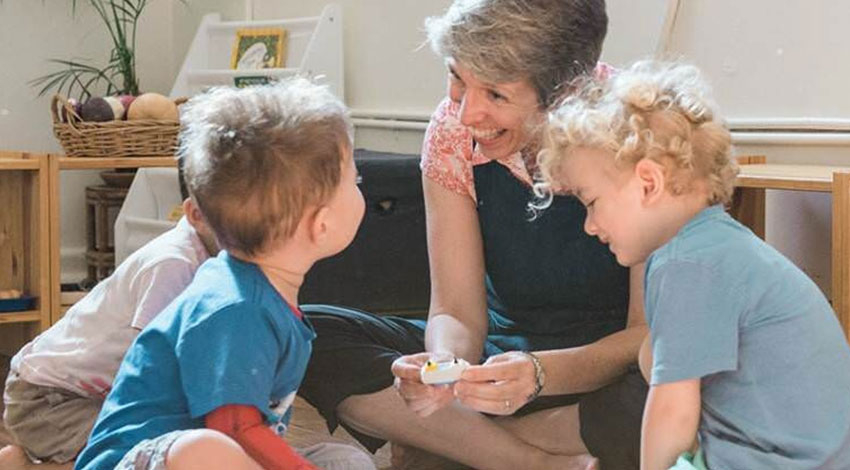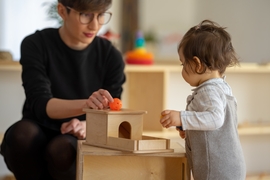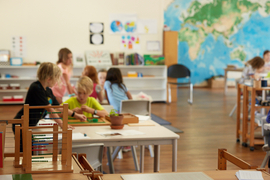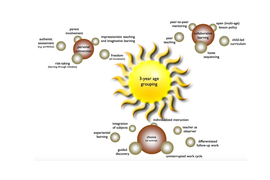
Practical suggestions for offering encouragement, not empty praise.
1. Create an environment where your child feels encouraged to become aware of his own actions
Parents sometimes use far too much praise in a well-intentioned attempt to build their child’s self-esteem: ‘You’re an awesome climber, you’re a great artist, you’re great at sitting quietly.’ However, often these remarks are not really sincere and they teach children to depend on praise for motivation to do something. When we praise children for doing something like eating their vegetables or putting on their shoes what we are really saying is that they did what we wanted them to do. Even young children can recognise when our remarks are not sincere and they are being manipulated.
Research shows that the present culture of over-praising children leads them to feel that they have a right to things in life irrespective of the amount of effort they have put in. Overpraising our children confuses them about their own self-worth since they are not able to judge for themselves how good they are at something if we always tell them they are doing well. This is not to say that you should not encourage your child. Your child will thrive on positive statements just as we do when our effort is appreciated by work colleagues or family members.
If we are to think about the way we encourage children we need to do some work on training ourselves in a new approach so we don't fall back on the kind of praise that we hear all around us these days.
2. Connect your child to the possibility of starting to become aware of the impact of his own actions
Focus on the action or the effort, not the person
Instead of saying ‘you’re such a good helper’ say ‘thank you for setting the table’. Instead of saying ‘you’re such a good chopper’ say ‘thank you for cutting the carrots for dinner’.
Nurture Empathy
Instead of saying, ‘I like the way you comforted Anna’, call her attention to the effect of her action on the other person: ‘Look Anna stopped crying when you brought her a tissue and hugged her. She must feel better now’. This is completely different from praise, where the emphasis is on how you feel.
Quietly observe
Your child does not expect praise. You may be surprised to see that your child works and plays with more persistence when you say nothing.
Express gratitude
When you are in a rush, instead of saying, ‘You are going to make us late with your dawdling. Hurry and put on your coat’, say, ‘You are helping us get to the dentist on time because you are putting on your own coat’.
Observe rather than evaluate
When your toddler is building with blocks, instead of saying, ‘Your blocks are all over the floor’, say, ‘You are using all the blocks.’ An observation may build interest and reflection, but a judgement can be discouraging.
Allow room for self-evaluation
Instead of saying, ‘I love your painting.’ say ‘You filled the left side of the paper.’ This focuses your child’s attention on the painting and not your opinion of it. Instead of ‘What a great horse.’ [which may not be very sincere] say ‘You painted a red horse.’ This focuses your child’s attention on evaluating the painting for himself rather than on your evaluation of the painting.
Accept that rewards are not necessary
An activity that your young child is engaged in is rewarding in itself. When your child is learning how to peel a banana the joy is in the skin coming off in clean strips and revealing the banana and the joy of eating the banana. When she fills the dog’s bowl and sees him come running with his tail wagging, that is her reward.
Research has shown that rather than motivate children rewards can have the opposite effect. Rewards erode your child’s inner motivation. Even small children can work out that if they have to be rewarded for doing something that something might not be something nice to do!
Accept that punishment doesn’t work
Punishment tells the child what not to do, not what to do, and it often makes a small problem bigger. Your young child may remember the punishment but may not connect the punishment to the behaviour that triggered it. A child who has been punished can feel powerless, humiliated, defiant, and resentful.
Research demonstrates that punishment has the short-term effect of stopping the offending activity but has no long-term effect on behaviour. When children are punished, the adult solves the problem in the short term and the child doesn’t learn how to solve problems in the long term.
‘Time out’ is commonly used to control children’s behaviour these days. In ‘time out’ children are typically confined to a chair, room or space for a set period of time to gain control of themselves and think about their behaviour. The problem with this approach is that if the child was capable of thinking about his behaviour he probably would not have done it in the first place. But more importantly, ‘time out’ does not provide any help for the child to start controlling his behaviour from within.
3. Make time for your child's awareness to emerge
It takes time for your child to start to become conscious of how her actions affect others. Your child is at the beginning of a journey of self-realisation that will last for life. But when you are patient and keep using an approach that helps her to become aware of her behaviour rather than overpraising, judging or criticising her she will gradually become aware of the reality of her own behaviour and start to take control for herself.



